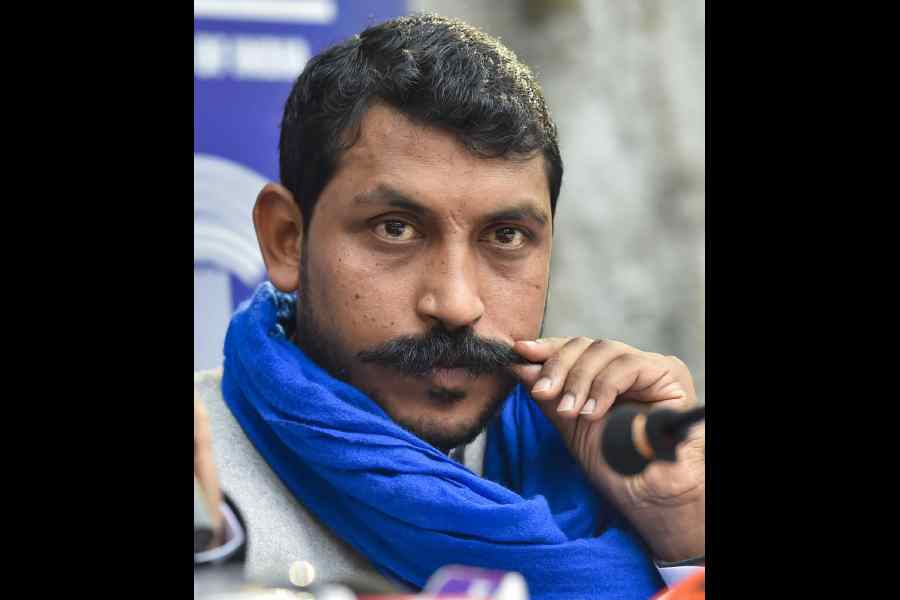The current political dynamics proves that Dalit political parties are prudent and pragmatic. The Bahujan Samaj Party in Uttar Pradesh and the Vanchit Bahujan Aaghadi in Maharashtra refused to join the national political alliances and contested the general election independently, while the Lok Janshakti Party in Bihar and the Viduthalai Chiruthaigal Katchi in Tamil Nadu shifted to the National Democratic Alliance and the INDIA bloc, respectively. The BSP, VBA or VCK, which contested the elections independently or joined the secular alliance, did not taste much electoral success: the LJP-BJP coalition in Bihar did.
The victory of Chandrashekhar Azad as an independent candidate from Uttar Pradesh’s Nagina constituency, a reserved seat, appears like an aberration in this context. It is too early to predict the future of Azad and his Azad Samaj Party (Kanshi Ram). Given the visible decline of the BSP, Azad’s victory provides a breather to the Dalit political movement.
Azad has carved out a distinct leadership of his own. He has hardly criticised the BSP or its leadership. Instead, he has promoted himself as the legitimate heir of the social movement started by Kanshi Ram. He engaged with secular political outfits (mainly the Samajwadi Party and the Congress) and adopted a political rhetoric that would impress the Dalits and the Muslims. Beyond routine political activism and campaigns, Azad also stands out for being vocal against atrocities on Dalits; he rose in defence of Muslims during the anti-CAA protests and was an influential participant in the farmers’ movement. He thus presented himself as a leader ready to challenge those in power to defend constitutional values.
Azad’s image and uncompromising attitude towards the right-wing forces have ignited a new energy among Dalit youths, widening the support base of the ASP. The possibility for the revival of an independent Dalit movement is dependent upon the capacity of such young leaders. Interestingly, Azad has adopted the conventional tactics of the BSP to win elections; his mobilisation of the Jatav-Muslim support base to win the Nagina seat is a case in point. However, he is also distinct from his predecessors in the Dalit movement as he is more engaged and responsive towards major national issues. He appears to have developed a better accord with the Dalit social base, popular media and national political parties. Many contemporary Dalit political leaders are equally engaged with issues of social justice and are influential on the ground. However, their mass popularity is debatable. But there is also concern that Azad’s popularity is limited to the social media generation whereas the BSP still holds significant influence over socially marginalised groups on the ground. Furthermore, building an organic organisation of committed young leaders, intellectuals and social activists is the need of the hour — but this is not the case with the ASP yet. Azad will also need to offer a new social justice manifesto responding to the cultural and economic crises that the neoliberal market economy has perpetuated over those on the margins.
In the recent past, the politics based on the ideals of social justice has been marginalised. There is criticism that the current Dalit leadership lacks vision. Political initiatives that can galvanise Dalit movements and yield electoral gains are largely absent as well. Can Azad, a young, promising and independent leader, provide a new political vision to the Dalit movement and redefine the agenda of social justice? He has the potential to serve as the linchpin to connect diverse Dalit parties and create a national front in defence of social justice. Such a front will help the fragmented Dalit movement churn out a new social justice manifesto for the cause of Dalit unity.
Harish S. Wankhede is Assistant Professor, Centre for Political Studies, Jawaharlal Nehru University










